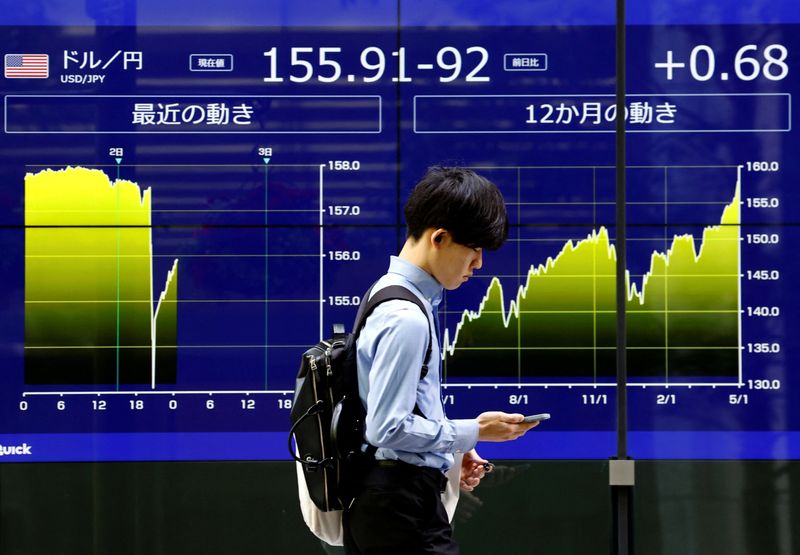By Makiko Yamazaki and Takaya Yamaguchi
TOKYO (Reuters) - Japanese authorities likely intervened in the currency market to signal they see 160 yen to the dollar as their line in the sand, Columbia University academic and former finance ministry executive Takatoshi Ito told Reuters on Thursday.
"Intervention is effective if conducted in a timely manner," said Ito, who is an associate of former Bank of Japan Governor Haruhiko Kuroda and retains close contact with current Japanese policymakers.
"By hammering speculative moves with intervention, the authorities are trying to generate market expectations that 160 could be the dollar/yen's ceiling," he said.
Japanese authorities are suspected of having stepped into the foreign exchange market at least twice this week to prevent sharp and economically debilitating declines in the yen.
Ito said the central bank may raise interest rates twice to 0.5% by the end of this year if yen weakness persisted and boosted inflation significantly.
"When the yen's decline is proceeding gradually reflecting interest-rate differentials, it's hard to change the trend with currency intervention," Ito said.
"If the yen's weakness continues and has a pass-through on inflation, two rate hikes by end-year could become an option for the BOJ," he said. "There's a chance the BOJ could raise rates again this autumn at the earliest," he added.
Ito said he "wouldn't be surprised if the BOJ's policy rate heads toward 2% in the medium term", provided the central bank's 2% inflation target is achieved and the economy remains solid.
He also pointed out that a weak yen by itself was unlikely to derail the Japanese economy if it stayed at around current levels, as it benefits export-oriented companies.
Concerns about the negative impact on consumption could be addressed with consumption-boosting policy measures, he said.

Ito served as deputy vice minister for international affairs at Japan's finance ministry from 1999 to 2001. He also served as a private-sector member of the government's top economic council for two years until 2008.
($1 = 156.0200 yen)